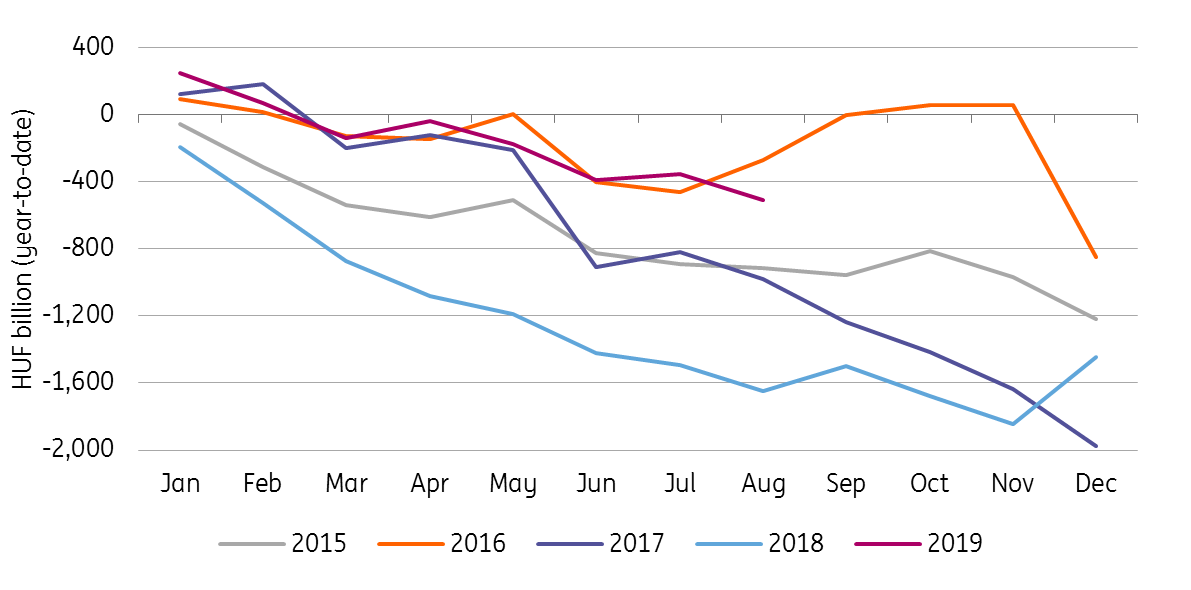Hungary: Budgetary deficit suggests more spending
The year-to-date government budget deficit came in at HUF510.8bn, only 51.2% of the year-end target. The government is likely to increase spending in the next months
The August year-to-date balance of the cash flow-based government budget came in at a HUF510.8bn deficit, which is only 51.2% of the full-year target. However, expenditures and revenues are not proportionate during the year. This, after all, counts as a really strong budget measure, providing the government some extra space either to spend more or to reduce its debt before year-end. The majority of the deficit is still related to the pre-financed EU projects.
This year, the government has spent HUF952.5bn on EU projects, while only HUF467.3bn has come in from Brussels, explaining 95% of the overall year-to-date deficit. This also suggests that the government can calculate with incoming EU transfers throughout the year, providing some additional fiscal space.
Cash flow based year-to-date central budget balance

The monthly balance in August showed a relatively high deficit of HUF158.1bn. The negative gap between inflows of EU funds and pre-financing made up almost half of the deficit. Apart from that, the extra family transfers advance payment added HUF30.7bn to it, according to the Ministry of Finance.
The revenues are still fuelled by the tight labour market and thus the related direct tax collection. The strong domestic demand, coupled with the retreat of the shadow economy results in record-high indirect tax revenues.
The relatively good performance of the budget implies that the government’s deficit target of 1.8% of GDP for 2019 seems more than viable. As opposed to our previous view (that the government may aspire to a 1% of GDP deficit this year), the latest measures and newly announced programmes altogether suggest that the government will rather try to spend the additional revenues on transfers (eg, to pensioners in September) or invest in infrastructure.
This publication has been prepared by ING solely for information purposes irrespective of a particular user's means, financial situation or investment objectives. The information does not constitute investment recommendation, and nor is it investment, legal or tax advice or an offer or solicitation to purchase or sell any financial instrument. Read more
Download
Download snap